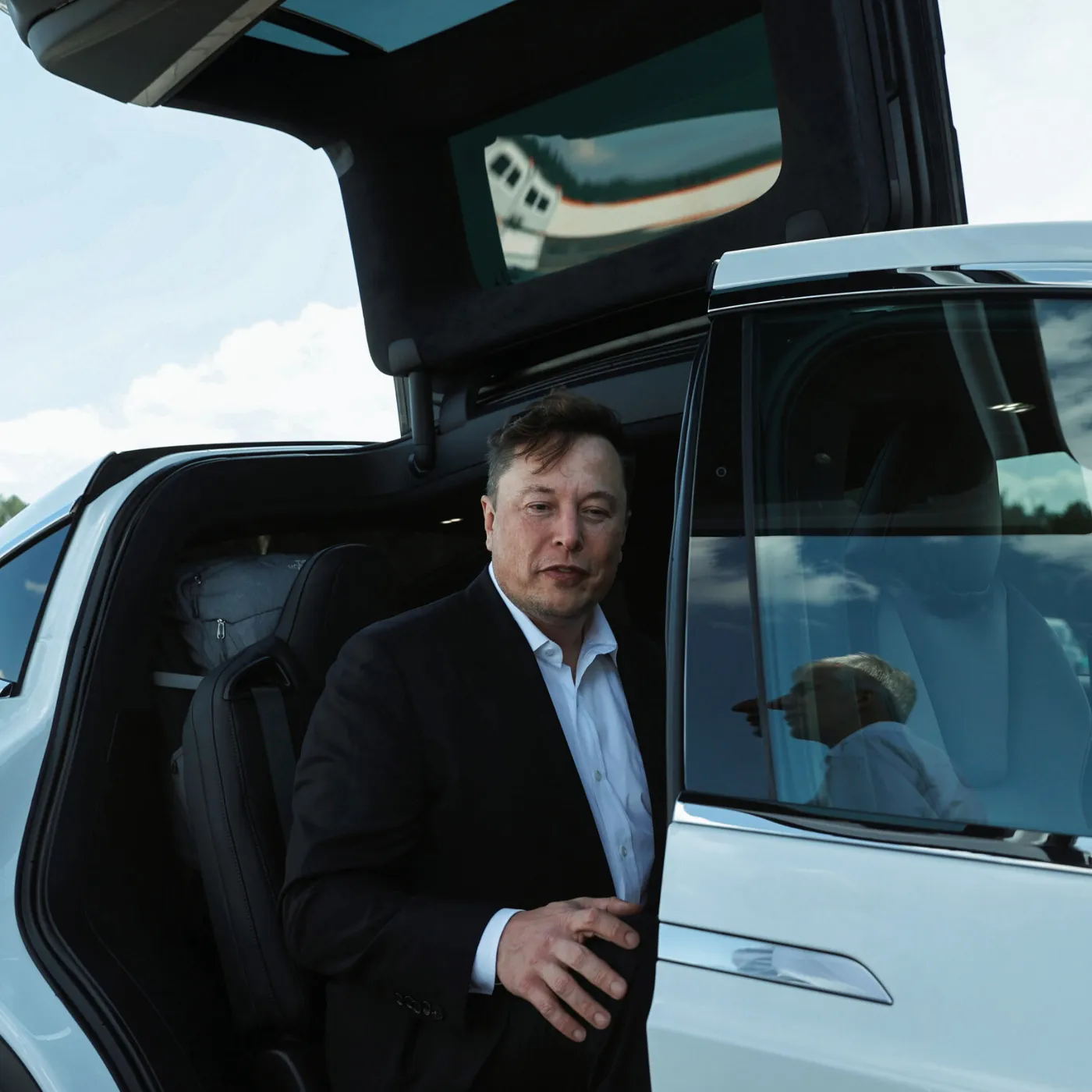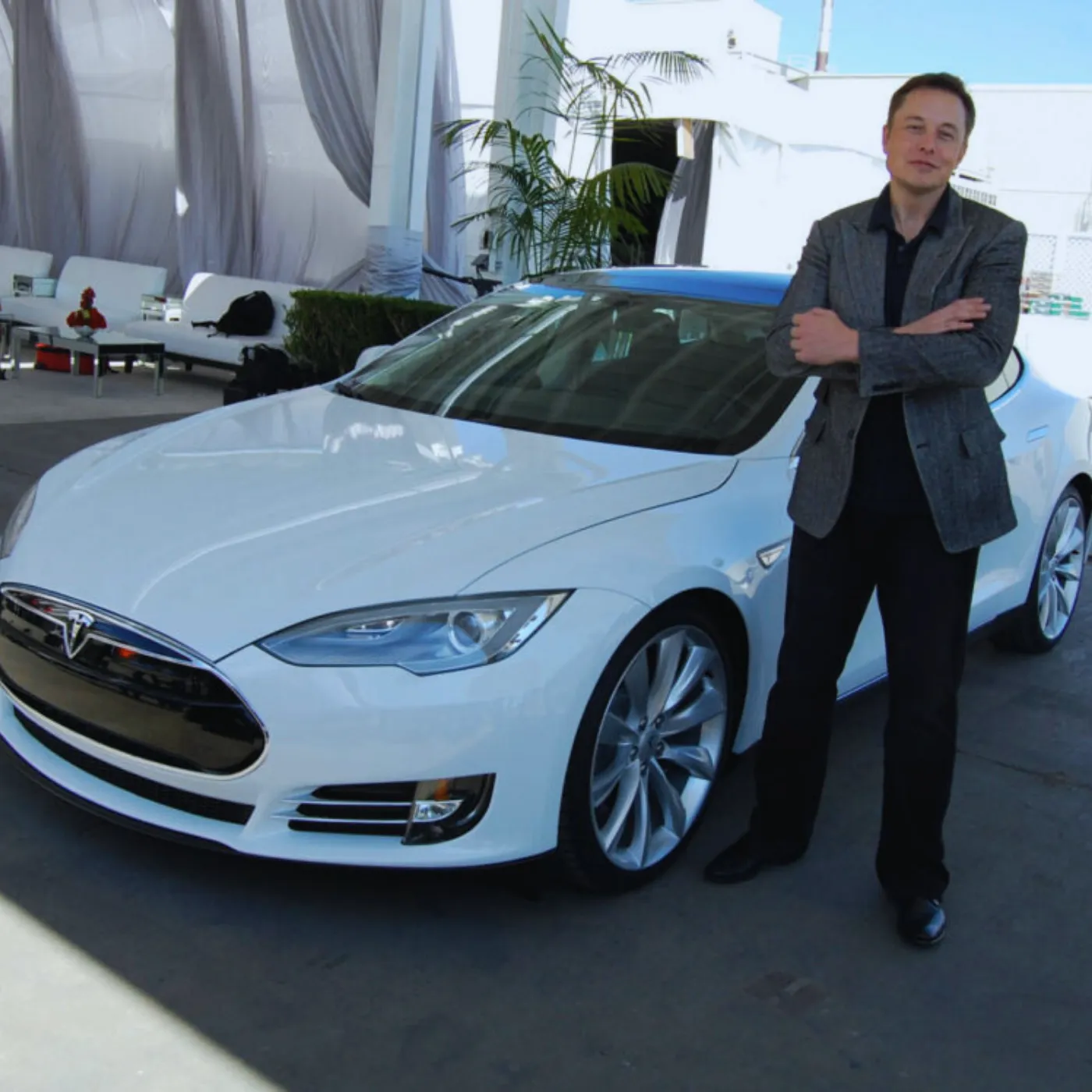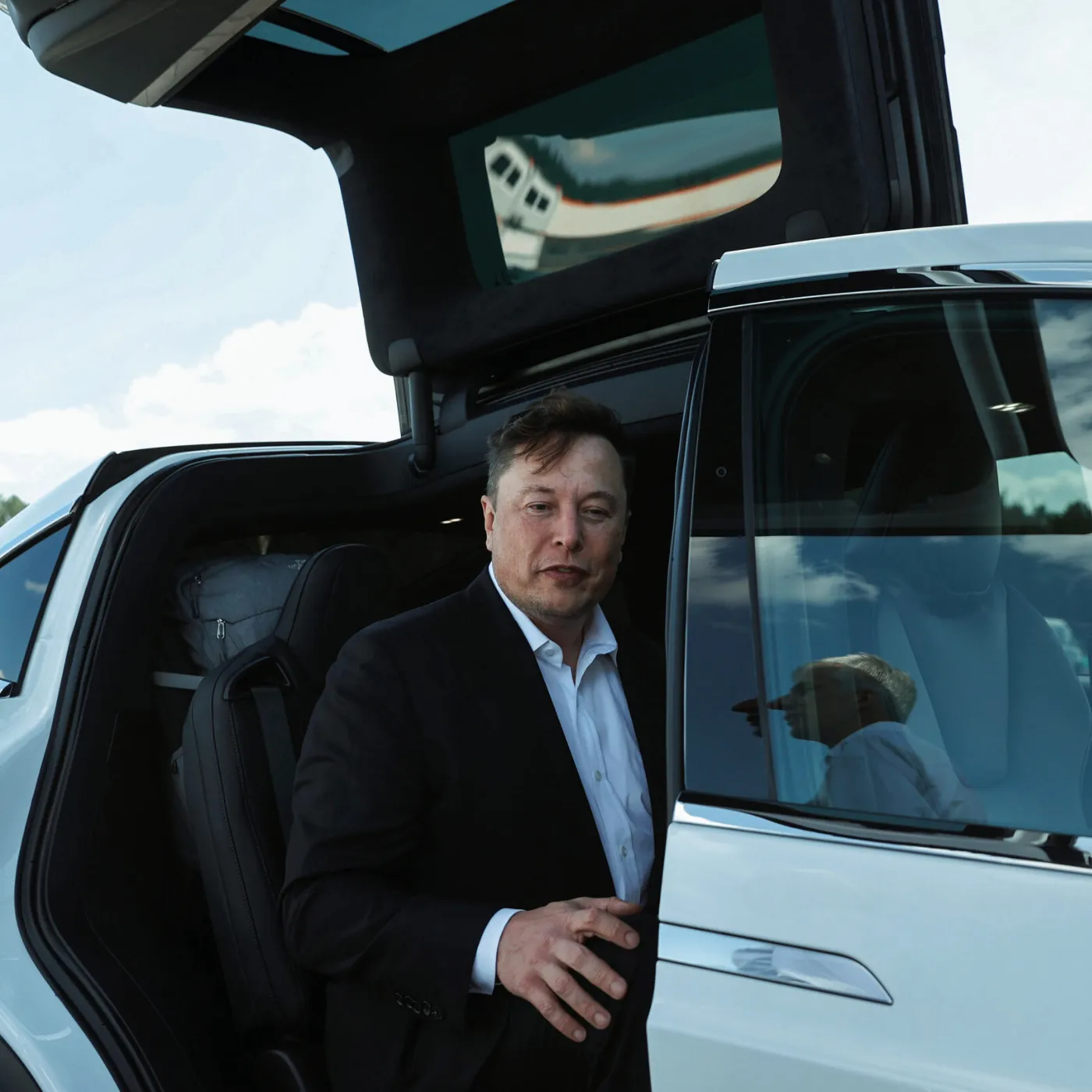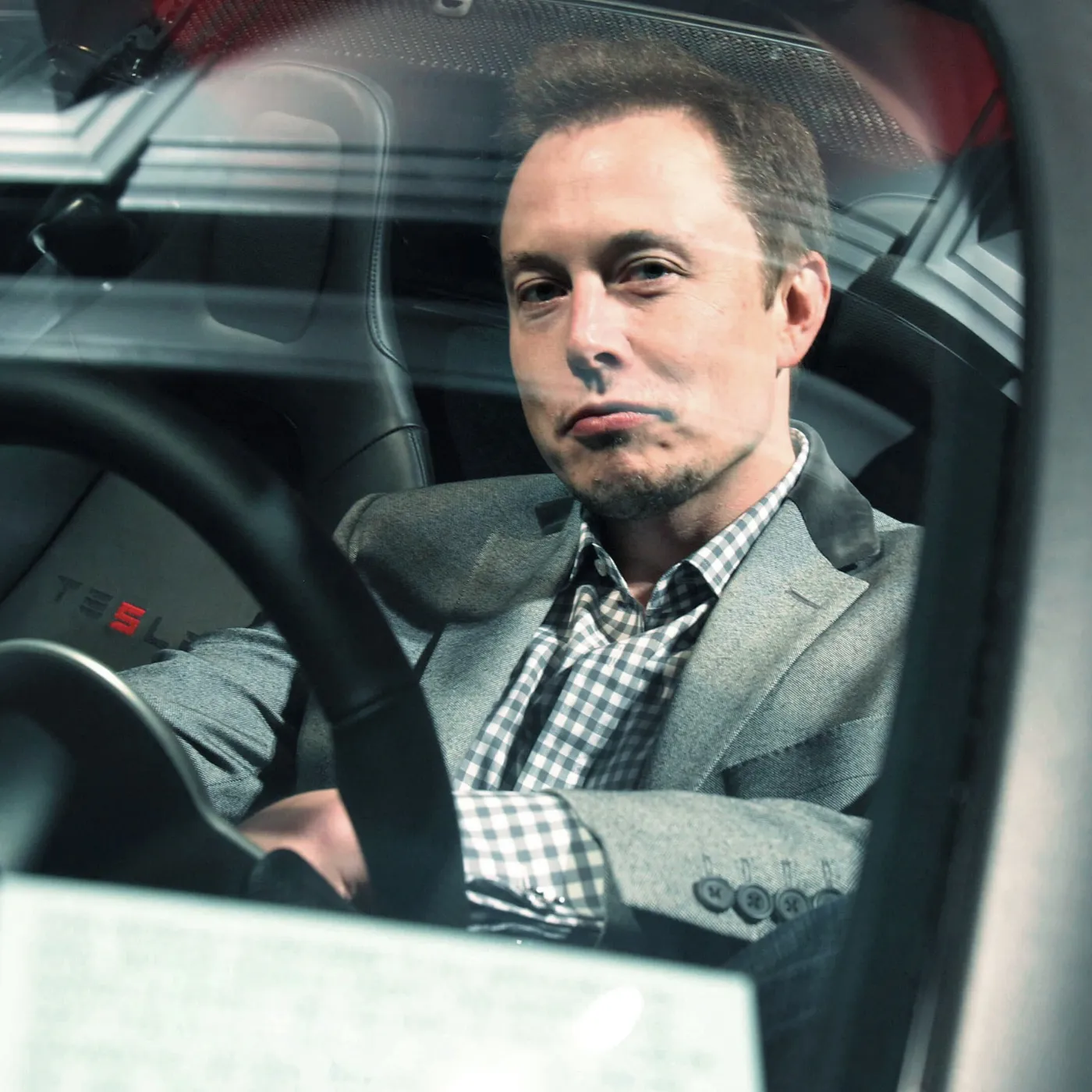

Tesla’s “Full Self-Driving” Scandal Could Finally Take Elon Musk Down
For nearly a decade, Elon Musk has been selling the dream of cars that drive themselves. He promised that Tesla’s Autopilot and Full Self-Driving (FSD) technology would not only revolutionize the road but also put his company years ahead of the competition. But as we move deeper into 2025, the cracks in Musk’s story are no longer small hairline fractures—they’re massive fault lines. From California regulators to a Miami jury and an explosive class action lawsuit, the empire Musk built on hype, tweets, and jaw-dropping claims is now being shaken like never before.

This isn’t just a story about broken promises. It’s a story about how one of the world’s most famous billionaires—praised as a genius, mocked as a showman, and feared as a disruptor—may finally be running out of road.
The Promise That Started It All
Back in 2016, Musk boldly declared that every Tesla being produced had the hardware necessary for “full self-driving capability.” He doubled down in 2019, claiming Teslas would soon operate as robo-taxis, generating passive income for owners while replacing human drivers.
It was peak Musk: visionary, futuristic, and irresistible to investors and fans who saw him as part Iron Man, part Steve Jobs. Headlines went wild, YouTube exploded with hype videos, and Tesla’s stock price soared.
But there was one little problem. The cars never truly drove themselves.
Tesla’s Autopilot is, at best, a driver-assistance system—not the sci-fi fantasy Musk has been teasing for nearly a decade. Owners still need to keep their hands on the wheel, their eyes on the road, and their minds alert. In fact, countless videos and reports show that when drivers let their guard down, the system can—and has—led to crashes.
Regulators Are No Longer Looking Away
For years, Musk danced around regulators, using his massive platform to brush off criticism. When the National Highway Traffic Safety Administration (NHTSA) opened investigations into Autopilot-related crashes, Tesla insisted the technology was safer than human drivers. Musk tweeted charts, statistics, and bold claims. Many shrugged and moved on.
But now, the patience of regulators is running out. California’s Department of Motor Vehicles (DMV) has accused Tesla of false advertising, arguing that terms like “Autopilot” and “Full Self-Driving” are misleading to customers. A Miami jury recently ruled against Tesla in a case involving a fatal Autopilot crash. And new lawsuits are piling up, with angry owners saying they paid thousands of dollars for features that don’t exist—and maybe never will.
The legal system is circling, and this time, Musk’s charisma might not be enough to escape.
The Cult of Elon Musk
To understand why this moment is so explosive, you have to understand the cult-like following around Musk. He isn’t just a CEO; he’s a cultural phenomenon. Fans worship him as the man who wants to colonize Mars, save Earth from climate change, and reinvent transportation.
On Facebook, Twitter (X), TikTok, and Reddit, Musk dominates conversation. His defenders call him a genius constantly underestimated by “haters.” His critics see him as a master manipulator who thrives on hype while delivering half-baked products.
And in the middle of all this noise, Tesla owners are left with cars that can’t do what they were promised.

The Real-World Consequences
Behind the memes, headlines, and flashy product launches, the consequences of Musk’s broken promises are deadly serious. Autopilot has been linked to dozens of crashes worldwide, some fatal. Families who lost loved ones in accidents involving Tesla’s self-driving features are demanding accountability.
One heartbreaking case involved a man in Florida whose Tesla, on Autopilot, slammed into a truck crossing the highway. The car’s system failed to detect the vehicle, and the driver never regained control. Musk once argued that Autopilot would “save lives,” but for these families, those words feel like cruel irony.
When lives are lost, the conversation changes. It’s no longer about flashy marketing—it’s about trust, responsibility, and whether a billionaire’s ambition should outweigh public safety.
The Class Action Storm
Perhaps the biggest threat to Musk’s empire isn’t regulators or bad press, but angry customers with lawyers. A new class action lawsuit accuses Tesla of deliberately misleading buyers with claims about Autopilot and Full Self-Driving. Plaintiffs argue they paid thousands in extra fees based on promises Musk knew were impossible to keep.
This isn’t just bad PR. If the lawsuit gains traction, it could cost Tesla billions in damages and force the company to change how it markets its vehicles. For investors who rode Tesla’s stock to astronomical highs, this is a nightmare scenario. For competitors like GM, Ford, and Waymo, it’s an opening.
The Power of the Hype Machine
One of Musk’s greatest strengths—and greatest dangers—has always been his hype machine. He doesn’t just sell cars; he sells visions of the future. When he promised flying cars, tunnels under cities, and a Mars colony, the world listened. Some laughed, some invested, some blindly believed.
With Tesla, Musk mastered the art of blurring the line between what exists today and what might exist someday. To the average consumer, terms like “Autopilot” and “Full Self-Driving” sound like science fiction come true. But in reality, they’re still beta features, nowhere near the autonomy Musk promised.
It’s a dangerous game: over-promise, under-deliver, and hope nobody notices until you’ve moved on to the next big idea. Except now, people are noticing.
Facebook Reacts: Fans vs. Haters
On Facebook, posts about Musk’s self-driving lies go viral almost instantly. The comment sections split into two camps:
-
The Defenders: “This is classic media bias. Elon will deliver. You just don’t get his vision.”
-
The Critics: “I paid $10,000 for FSD years ago. Still waiting. Scam of the century.”
The drama fuels engagement, and engagement fuels visibility. Facebook’s algorithm loves controversy, meaning Musk’s downfall—or at least this chapter of it—spreads faster than wildfire online.
The Reputation Collapse
For years, Musk has been untouchable. Every setback turned into a comeback. Every failure spun into a bigger promise. But reputation is fragile, and in 2025, cracks are showing everywhere.
-
SpaceX is still the crown jewel, but critics argue Musk uses it to distract from Tesla’s failures.
-
X (Twitter) has become chaotic under his leadership, drawing backlash that bleeds into Tesla’s brand.
-
Tesla itself is no longer the only game in town. Legacy automakers and startups are catching up fast in the EV market.
When your empire is built on image as much as product, reputational collapse can be deadly.
What’s Next for Tesla?
The billion-dollar question: Can Tesla recover?
Some analysts believe Musk will double down, promising a breakthrough to silence critics. Others think Tesla may quietly rebrand its Autopilot features, dialing back claims while trying to avoid massive fines.
But the lawsuits, jury rulings, and regulator crackdowns are real. They’re not tweets that can be deleted or journalists that can be blocked. They’re coming for Musk’s empire, and the outcome could shape the future of the entire auto industry.
The Bigger Picture: Tech Hype Culture
At its core, the Tesla self-driving saga is bigger than Musk. It’s about tech hype culture—a cycle where billionaires overpromise, investors pile in, consumers believe, and reality lags behind. From crypto scams to AI promises, Silicon Valley has thrived on this formula.
But when the hype involves cars traveling at 70 mph, the risks aren’t just financial. They’re life and death.

Final Word
Elon Musk once promised us a future where Teslas would pick us up from work, drive across the country while we napped, and make us money as robo-taxis while we slept. In 2025, that future looks more like a mirage.
California regulators are cracking down. A Miami jury has sent shockwaves. And a massive class action lawsuit could bleed Tesla dry.
For nearly a decade, Musk’s self-driving lies have propelled him to the top of the tech world. But now, those lies may be the very thing that bring him crashing down.
And this time, even Elon Musk might not be able to tweet his way out.


















